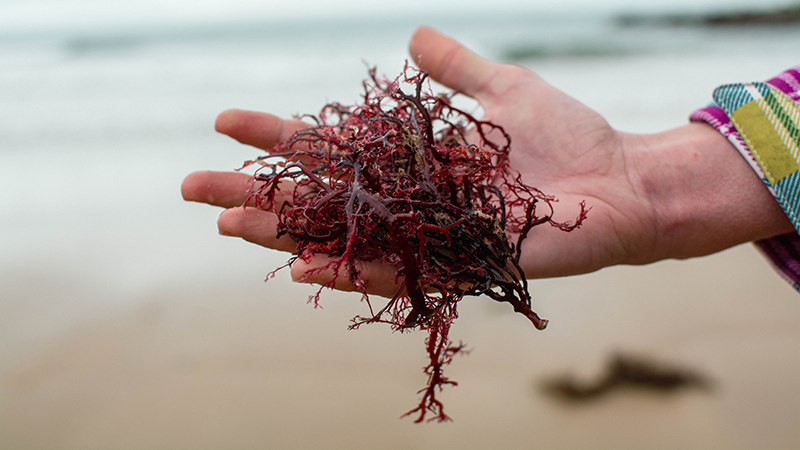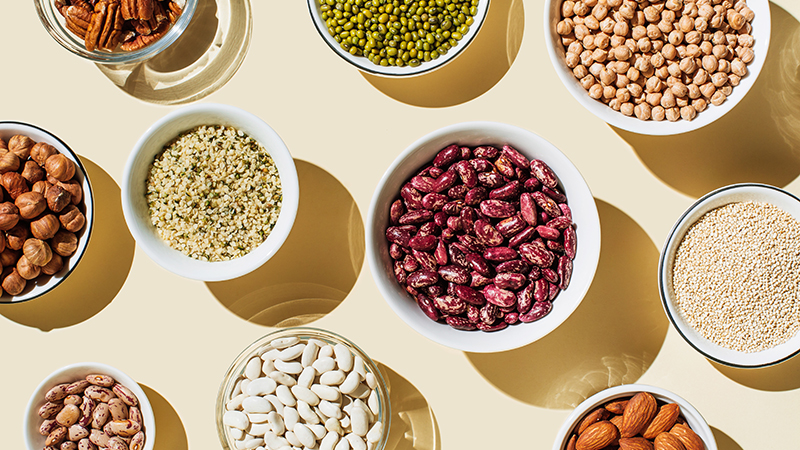I Survived Cancer. Now What?
A Guide to Healthy Eating and Exercise After Cancer Treatment
Published April 2023
Congratulations! You received news from your oncologist that you completed cancer treatment and are now cancer-free. While celebration is certainly in order, this can be a confusing time after adjusting to months, and perhaps years, of cancer treatments, possible side effects, scans and lab reviews with your oncology team. This transitionary period — from requiring so much medical intervention to periodic check-ups — can leave you wondering, “What’s next?”
We’d like you to be as healthy as you were before your cancer diagnosis.— Christopher M. George, MD
“After cancer treatment, we’d like you to be as healthy as you were before your cancer diagnosis — and maybe even healthier,” says Christopher M. George, MD, the medical director of the Northwestern Medicine Oncology Program in the west and south suburbs of Chicago. Dr. George, who leads a presentation for cancer survivorship at the Northwestern Medicine Living Well Cancer Resources, says patients who have completed cancer treatment often ask him these two questions:
- What should I eat to stay healthy after cancer?
- What can I do physically to stay healthy after cancer?
Dr. George stresses that you should talk with your oncology team about what nutrition and exercise plans are best for your condition, but that the following principles generally apply for optimal health.
Eat a Balanced Diet
To regain your strength and energy, and allow your body to work effectively after cancer treatment, Nancy Zawicki, RD, and Mary Zupke, RD, dietitians at Northwestern Medicine who specialize in oncology and teach nutrition classes at Living Well Cancer Resources, recommend building meals around a variety of fruits, vegetables, whole grains, and proteins low in saturated fat like fish, lean meats, eggs, nuts, seeds, beans or other legumes. With this structure, you’ll get all of the vitamins and nutrients your body needs and feel more in control of your health at all points of survivorship.
Pro tip: When it comes to buying whole-grains foods at the grocery store, Zawicki and Zupke advise reading labels to ensure you are selecting whole-grain versions of pastas, rice, bread, cereal and flour. Examples of whole grains include:
- Quinoa
- Brown rice
- Wild rice
- Oats
- Popcorn (yes, popcorn is a whole grain!)
- Barley
- Wheat
- Bulgar
- Farro
Pro tip: To add flavor to foods, Zawicki and Zupke recommend reducing your salt and butter intake and instead trying healthier seasonings such as:
- Black pepper
- Fresh garlic
- Onion
- Lemon or lime juice
- Turmeric
- Cinnamon
- Ginger
- Fresh or dried herbs such as basil, mint, cilantro, oregano and rosemary
- Vinegars
- Mustards
- Hot sauce
Pro tip: The dietitians recommend choosing healthy high-fat foods to stay full and satisfied throughout the day. Some of their favorites include:
- Avocados
- Olives
- Olive oil
- Walnuts
- Almonds
- Salmon
- Tuna
- Pumpkin seeds
- Chia seeds
Pro tip: Several fruits and vegetables that can be found in your local supermarket, farmers market or your own garden have anti-inflammatory properties. Inflammation is your body’s natural defense against things like viruses, bacteria, injury and toxins, but when it happens too often, it can trigger diseases and may have a connection to cancer. Zawicki and Zupke recommend incorporating these anti-inflammatory fruits and vegetables into your diet:
- Beets
- Berries
- Broccoli
- Cauliflower
- Leafy greens like spinach, kale and collards
- Tomatoes
- Bell peppers
- Chili peppers
- Squash
- Red grapes
- Cherries
If you find that you need help with your diet and nutrition at any time on your cancer journey, contact your oncology team about nutritional counseling.
Exercise Regularly
Years ago, oncologists were more inclined to advise patients living with and beyond cancer to rest and avoid physical activity. Now, after much exercise oncology research, evidence points to the great benefits of being more physically active during and after cancer treatment.
The American Cancer Society recommends adults get between 150 to 300 minutes per week of moderate intensity activity, such as walking or leisurely bike riding; or between 75 to 150 minutes per week of vigorous intensity activity, such as jogging or swimming; or a combination of the two.
There are many benefits to regular physical fitness during and after cancer treatment. It has been shown to:
- Reduce treatment-related fatigue
- Maintain heart and lung fitness, and physical ability
- Reduce feelings of anxiety and depression
- Improve balance to reduce risk of falls
- Prevent muscle loss and build strength
- Maintain a healthy weight
- Improve sleep
Depending on your current health, ability and your oncology care team’s approval, try several types of activities such as pickleball, disc golf, tai chi, badminton, paddle boarding, yoga, circuit training or water aerobics, and see what works for you. You may surprise yourself and end up enjoying a physical activity that you never tried before.
“For patients, the fear of cancer recurrence or developing a second cancer is real,” says Dr. George. “While there is no guarantee cancer won’t return, taking steps to follow a healthy diet, staying physically active and working with your oncology team on a post-treatment care plan are things you can control to help you achieve a better outcome.”






